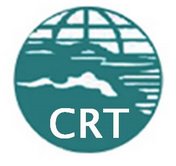Caux Round Table 2010 Global Dialogue
Published 08-02-10
Submitted by Caux Round Table, The
The Caux Round Table announces its 2010 Global Dialogue in Beijing, China, for October 22, 23 and 24, 2010 at the Bailuyuan Education Training Center.
Registration is available on the Caux Round Table website at www.cauxroundtable.org.
The co-host for the Dialogue is the Center for International Business Ethics, Beijing. Resource organizations are: The Central Party School, University of International Business and Economics, Peking University.
Among the questions to be addressed:
- How can China become a major driving force in the adoption of responsible and ethical business as the means to ensure sustainable long-term economic development?
- How best can China balance its continuing economic growth with environmental sustainability and prosperity for its entire people?
- What standards of ethical conduct and corporate responsibility should be adopted and widely promoted by the Government and the Party?
The preliminary agenda is available on the Caux Round Table website: www.cauxroundtable.org
China is now a world player. Consider these recent stories from the Financial Times:
Germany's exports surged in May in response to orders from China. "The Chinese are buying more German fridges, dryers and cars." "Demand?" said Diether Klingelnberg, Chair of Klingelnberg, a maker of machine tools, "It's China, China, China by a long way followed by India, Brazil and then Russia." The U.S. and Europe remain weak markets.
China bought a record amount of Japanese government bonds in May, reflecting concerns over the value of the Euro. But although diversifying its investment, China gave the Eurozone a boost with an order for 1 billion Euros of Spanish government bonds. China has ruled out the "nuclear option" of dumping its holding of U.S. bonds. However, they called on the United States to adopt "responsible economic policies."
Jeff Immelt, CEO of GE, accused the Chinese Government of being increasingly hostile to foreign multinationals. "I really worry about China," he said recently in Rome. He warned that his company was exploring prospects in resource-rich countries that do not want to be "colonized by Chinese investors."
China's Me Generation - the Little Emperors raised as only children of doting parents - is beginning to show its teeth. The younger generation is less willing to "eat bitterness" and wants rising wages and lower costs for housing and consumer goods. These demands will shift the cost basis of the Chinese economy.
The Chinese market for pharmaceuticals will be the world's third largest next year, while the Japanese company, Eisai, has developed a special strategy for gaining market share. It has focused on the drugs that respond to more special Chinese conditions and which are on the government's list of reimbursable medicines.
This year's Caux Round Table Global Dialogue in Beijing could not be timelier to address these and other issues on the vital importance of China to the global community.
Co-sponsored by:

Caux Round Table, The
Caux Round Table, The
Vision: Our VISION is for a world with - Rising Living Standards, Social Justice and Human Dignity for All Our vision is all about being obsessed with better possibilities for all. This vision is not small; to facilitate change for the better in humanity's ability to raise living standards, provide for social justice and realize the fullness of individual human dignity in all our days is a challenge of massive proportions but it is a challenge we readily accept. To achieve it, we will have to inspire and lead with inspiration and courage.
Mission: Our MISSION is twofold:
* To promote moral capitalism and responsible government
* To ensure greater prosperity, sustainability and fairness in a global economy.
These are our overarching goals and priorities. They translate our vision into a concrete view of our direction and purpose.
We believe Moral Capitalism is the only system with the potential to reduce global poverty and tyranny and address the needs and aspirations of individuals, societies, and nations.
As Stephen Young, the Executive Director of the Caux Round Table has written, "the challenge of moral capitalism is to tip the balance of wealth creation toward humanity's more noble possibilities and away from the dynamics of more brutish behavior."
The Caux Round Table stands for movement from aspiration to action. We straddle the ideals of principles and of ethical concern for the common good and the practical needs of businesses and governments to "get it right" in their actions and decisions. To facilitate implementation of a more moral capitalism, the Caux Round Table provides decision-making guidelines in the form of principles for business, principles for governments, principles for NGOs, and principles for the owners of wealth. The Caux Round Table futher provides a comprehensive risk assessment approach to CSR and stakeholder relationships, Arcturus, and a way of encourageing individuals to reflect on their decision-making styles to move from self-centered frameworks to stakeholder frameworks in business and public policy decision-making. We also provide educational programs for company directors, CSR certificates, and handbooks on CSRT for small and medium size enterprises and on the practice of moral government.
More from Caux Round Table, The

